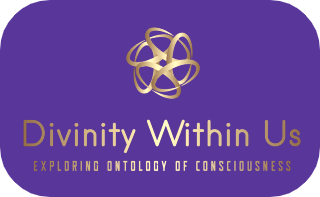Introduction to Primordial Awareness
Primordial awareness is a profound concept that refers to a fundamental state of consciousness, which exists independently of thought and perception. This awareness is often described as the purest form of consciousness, a non-dual awareness that transcends the boundaries of the cognitive mind. In the realms of spirituality and philosophy, primordial awareness is recognized as a key to understanding our existence, serving as the backdrop against which all experiences, thoughts, and emotions unfold.
The significance of primordial awareness in spiritual discourse cannot be overstated. Many traditions suggest that this state allows for a deeper connection to the self and the cosmos, promoting an understanding that goes beyond the limitations imposed by conditioned thinking. By prioritizing experiences of primordial awareness, individuals can cultivate a sense of inner peace and a profound realization of their interconnectedness with all beings. This knowledge is pivotal for personal transformation and spiritual growth, inviting practitioners to explore the subtleties of their consciousness.
Philosophically, primordial awareness has spurred numerous discussions regarding the nature of reality and perception. Thinkers across various traditions have pondered how awareness informs our understanding of existence. It prompts critical inquiries into the nature of subjectivity and how our interpretations shape the lived experience. The exploration of this state invites individuals to examine their belief systems and the filters through which they perceive the world.
As we delve deeper into the various contexts of primordial awareness, we will examine its applications across different philosophical and spiritual traditions. This exploration will illuminate the pathways to accessing this fundamental state of consciousness, which ultimately serves as a bridge to a more profound understanding of life itself.
Primordial Awareness in the Worldly Context
Primordial awareness serves as the foundation of our consciousness, representing a state of pure awareness that exists prior to the entanglements of cognitive processes. In our everyday experience, this form of awareness can be easily overlooked, as the distractions of modern life often pull attention away from our intrinsic nature. However, understanding and recognizing this primordial state can significantly enhance our overall well-being. It invites individuals to engage in a mindful exploration of their thoughts and emotions, allowing for a deeper connection with the self.
Meditation practices are vital for accessing states of primordial awareness. Techniques such as mindfulness meditation, focused attention, and even contemplative practices encourage individuals to cultivate a heightened sense of presence. These methods enable practitioners to transcend the continuous narratives of the mind, facilitating a direct experience of pure awareness. During meditation, the goal is often to observe thoughts and emotions without attachment, fostering a sense of detachment that allows for clarity and understanding. Over time, this practice reveals the transient nature of thoughts, thereby aligning one’s consciousness more closely with primordial awareness.
Experiencing primordial awareness also implies embracing the potential for witnessing one’s thoughts and emotions without judgment. This witnessing aspect is crucial, as it helps in breaking the habitual identification with the mind’s fluctuations. By cultivating an attitude of openness and acceptance towards thoughts and feelings, individuals can begin to recognize their inherent nature, which is often clouded by the complexities of daily life. This realization can lead to a more profound state of peace and contentment, illustrating how primordial awareness is not merely an abstract concept but a practical state of being that can enhance the richness of everyday experiences.
The Role of Meditation in Accessing Primordial Awareness
Meditation serves as a vital tool for individuals seeking to access primordial awareness, an innate state of consciousness that emphasizes presence and clarity. Numerous meditation techniques exist, each offering unique pathways to this deepened state of being. Among these, mindfulness and Zen practices stand out as especially effective methods for reconnecting with one’s fundamental awareness.
Mindfulness meditation encourages practitioners to focus on the present moment, fostering a heightened sense of awareness regarding thoughts, sensations, and emotions. This practice cultivates a non-judgmental observation of one’s internal landscape, allowing individuals to recognize and release mental clutter. By anchoring their attention to the breath or the sensations within the body, practitioners can quiet the mind and create space for deeper awareness to emerge. This quieting of the mental chatter is essential for tapping into primordial consciousness, as it shifts the focus from external distractions to internal insights.
Zen meditation, or Zazen, emphasizes the importance of stillness and simplicity, often incorporating postures and breathing techniques to foster a calm mind. This practice invites individuals to observe their thoughts without attachment, further enhancing their ability to establish a profound sense of presence. By embracing the discipline of sitting in stillness, practitioners may discover a gateway into a more expansive consciousness, connecting with the essence of their being beyond the noise of daily life.
The benefits of these meditation practices go beyond merely quieting the mind. Regular engagement in mindfulness or Zen can lead to increased emotional resilience, improved focus, and a deeper understanding of oneself. As individuals immerse themselves in these techniques, they not only experience enhanced mental clarity but also awaken to a richer level of awareness that resonates with the nature of existence itself. This journey through meditation ultimately serves as a bridge to one’s primordial awareness, supporting personal and spiritual growth.
Primordial Awareness in the Universal Context
Primordial awareness, often described as a fundamental consciousness that underlies all existence, serves as a pivotal concept within various philosophical and spiritual traditions. This notion posits that ancient awareness is the root of all matter and energy in the universe, ultimately leading to a deeper understanding of cosmic consciousness. In exploring this theme, we can find remarkable similarities in how diverse traditions articulate this idea, albeit through different terminologies and frameworks.
The concept of cosmic consciousness suggests that all individual consciousnesses are interconnected and form a greater whole. Primordial awareness acts as the foundation of this interconnectedness, reflecting the idea that everything in the universe is interdependent. For instance, in Eastern philosophies such as Buddhism, this awareness is often viewed as inherent in all beings, influencing the perception of self and other. It is considered a universal quality that transcends individual experiences, thus bridging gaps between different forms of life.
In contrast, Western philosophical traditions have approached primordial awareness through the lens of metaphysics, examining the essence of existence and the nature of reality. Thinkers like Spinoza propose a form of absolute consciousness that permeates all of creation, aligning with the tenets of pantheism, where the universe itself is seen as a manifestation of divine awareness. This philosophical framework emphasizes the interconnectedness of all things, analogous to modern interpretations in quantum physics, which further support a collective singularity of consciousness.
In summary, across various cultural and philosophical landscapes, primordial awareness represents an essential principle that binds all existence. By understanding this awareness within the broader context of cosmic consciousness, we can better appreciate the intricate connections that define our universe. Each perspective offers valuable insights into the relationship between individual and universal consciousness, inviting us to contemplate our role within this vast network.
Insights from Mystical and Philosophical Traditions
The exploration of primordial awareness is not exclusively a contemporary inquiry; it has deep roots in various mystical and philosophical traditions, notably Taoism, Buddhism, and Advaita Vedanta. These traditions provide unique perspectives on the essence of consciousness, emphasizing the interconnectedness of all beings and the universe itself.
In Taoism, the concept of “Tao” represents the fundamental principle that underlies and unites everything in existence. It posits that a singular cosmic consciousness permeates the universe, allowing for a harmonious coexistence of all elements. By embracing the flow of the Tao, practitioners gain insights into the non-dual nature of reality, learning to recognize that individual consciousness is merely a manifestation of a greater, universal awareness. This understanding encourages a deep sense of unity and interconnectedness with the cosmos, moving beyond the illusion of separateness.
Buddhism offers a complementary perspective, particularly through its notion of “emptiness” (Śūnyatā). This teaching asserts that all phenomena are interdependent and lack inherent, independent existence. By meditating on this principle, individuals can experience a profound awareness that transcends dualistic perceptions. The realization of non-duality in Buddhist practice is akin to awakening to primordial awareness, where the distinction between self and other dissolves, revealing an underlying continuum of consciousness shared by all beings.
Advaita Vedanta further articulates this principle of non-duality through its core teaching of “Aham Brahmasmi,” meaning “I am Brahman.” This foundational assertion emphasizes that individual consciousness (Atman) is ultimately identical to the universal consciousness (Brahman). The teachings of Advaita Vedanta encourage seekers to peel away layers of illusion and ego, thereby facilitating a direct experience of primordial awareness as the true essence of existence, where the cosmos and consciousness unite.
These traditions collectively affirm that the essence of awareness is not merely an isolated experience but a universal phenomenon, encompassing and connecting all entities within the cosmic fabric. This perspective enriches our understanding of consciousness and emphasizes the significance of recognizing the profound interconnectedness inherent in all aspects of existence.
Primordial Awareness Beyond the Universe: Transcendental Perspectives
Primordial awareness, often regarded as the fundamental essence of consciousness, signifies a state of being that transcends the limitations imposed by time, space, and dualities. This form of awareness exists beyond the conventional understanding of reality, challenging the very fabric of our perceptual experiences. It is crucial to recognize that this awareness is not confined to any particular structure or definition; rather, it is formless, boundless, and ineffable, embodying a purity that eludes conventional categorization.
In exploring the transcendental nature of primordial awareness, we can draw parallels to various philosophical traditions that emphasize its universal character. Many spiritual teachings converge on the notion that this awareness is the ultimate reality, from which all existence emanates. This perspective invites a contemplative approach, urging individuals to look beyond the surface of their daily experiences and recognize the underlying consciousness that animates all forms of life. The implications of such recognition are profound, as they encourage a deeper connection to the universe and foster an understanding of the interconnectedness of all beings.
Furthermore, acknowledging primordial awareness as a transcendental entity diminishes the significance of dualities such as good and evil, self and other, or life and death. By dissolving these binary oppositions, one can attain a holistic realization of existence. This expansive perspective invites individuals to embrace a more profound sense of unity with the cosmos, suggesting that our individual consciousness is merely a reflection or manifestation of this greater, collective awareness. Such insights profoundly impact one’s worldview, promoting peace and harmony in recognizing that we are all part of an intricate web of existence, woven together by the threads of primordial awareness.
The Implications of Transcendental Primordial Awareness
Recognizing primordial awareness as a state that transcends all creation carries profound implications for our understanding of existence and consciousness. At its core, primordial awareness is not merely a form of consciousness but a fundamental state of being that exists beyond the conventional observer-observed dichotomy. This perspective encourages individuals to explore a deeper dimension of existence, wherein the boundaries between the observer and the observed begin to dissolve.
The implications of this recognition are vast, reshaping our understanding of individuality and interconnectedness. When awareness is perceived as a universal or transcendental phenomenon, it suggests that personal identity is not an isolated entity, but rather an extension of a greater consciousness. This realization can lead to a sense of unity with the world, fostering a more holistic understanding of life and encouraging compassionate interactions among individuals.
Furthermore, embracing this concept challenges the conventional frameworks of thought that have predominantly focused on dualistic perspectives. Instead of perceiving awareness in terms of separation, one is encouraged to contemplate the unity within diversity. This shift can lead to significant transformations in both personal and collective consciousness, allowing for an exploration of deeper truths that lie beneath the surface of ordinary experience.
Moreover, acknowledging the existence of transcendental primordial awareness offers a pathway to understanding phenomena traditionally deemed metaphysical or elusive. It opens the door to experiential insight that transcends intellectual comprehension, positioning awareness as the root of all experiences. As individuals begin to explore this deeper layer of being, they can cultivate a transformative approach to consciousness, one that recognizes the interconnected tapestry of existence.
In conclusion, recognizing the implications of transcendental primordial awareness not only enhances our understanding of self and other but also serves as a catalyst for personal growth and collective evolution. It invites a profound exploration of consciousness that transcends the ordinary, urging us to embrace a more expansive view of existence.
Summary of Primordial Awareness in Different Contexts
Primordial awareness, often viewed through diverse lenses, encapsulates a multifaceted understanding of consciousness that transcends traditional intellectual boundaries. In worldly contexts, primordial awareness is frequently associated with awareness stemming from human experiences, perceptions, and the sensory world. This perception is rooted in the physical and psychological elements that shape individual identity, emphasizing the importance of context, emotion, and the flow of daily life. Here, primordial awareness focuses on the interaction between self and the external world, highlighting a more immediate and practical understanding of consciousness.
In contrast, when regarded from a universal perspective, primordial awareness embodies a more expansive view that acknowledges the interconnectedness of all beings and existence itself. This viewpoint posits that consciousness is not limited to individual experiences but is instead a shared feature of reality. Within this framework, primordial awareness reflects the intrinsic unity behind the apparent multiplicity of forms, suggesting that all consciousness springs from a singular source. This universal aspect encourages a holistic approach to understanding awareness, transcending divisive notions of self and other.
Transcendental contexts further elevate the discussion on primordial awareness, directing attention to a realm that surpasses both worldly and universal perspectives. This level of awareness is characterized by an experience that goes beyond intellectual understanding and personal identity, often aligned with mystic or spiritual experiences. In this context, primordial awareness relates to the realization of pure consciousness, a state that is often described as ineffable and free from the constructs of thought. Here, the essence of primordial awareness becomes synonymous with enlightenment, suggesting that the true nature of consciousness is often beyond the dichotomies established by human perception.
Though differing in scope and emphasis, each perspective on primordial awareness points toward a shared essence that is fundamentally elusive and deeply rooted in both experience and existence itself.
Discovering Primordial Awareness Through Spiritual Practice
To uncover primordial awareness, individuals may engage in a variety of spiritual practices aimed at transcending the layers of mental constructs that often cloud genuine perception. At the core of these practices lies the intention to return to a state of pure awareness, unmediated by thoughts, beliefs, or emotional disturbances. This journey is transformative, revealing the essence of consciousness through contemplative experiences.
Meditation serves as a pivotal tool for many seeking to experience primordial awareness. By establishing a regular meditation practice, one cultivates mindfulness—a quality of attention that allows for the observation of thoughts and sensations without attachment. As practitioners settle into stillness, they learn to recognize the transient nature of thoughts and feelings, gradually peeling away the confusion that can obscure one’s innate awareness.
Additionally, breathwork is a notable technique that enhances awareness by focusing attention on the breath as a grounding force. Deep, conscious breathing provides a pathway to the present moment, helping individuals to release distractions and enter deeper states of relaxation and awareness. This practice fosters a connection to the life force within, enabling participants to tap into the expansive nature of their consciousness.
Engagement in nature can also facilitate the discovery of primordial awareness. Spending time in serene environments encourages a sense of interconnectedness and can dissolve the boundaries that separate the self from the world. By observing the natural rhythms of life, individuals may find themselves resonating with a deeper sense of existence, inviting awareness to emerge organically.
Moreover, contemplative inquiry, such as self-inquiry or journaling, can assist individuals in examining their internal dialogue and identifying limiting beliefs. This reflective process promotes a deeper understanding of one’s experiences and facilitates the discovery of intrinsic awareness. Collectively, these varied practices invite participants to embark on a profound exploration of their consciousness, unveiling the richness of primordial awareness hidden beneath layers of conceptual thinking.






